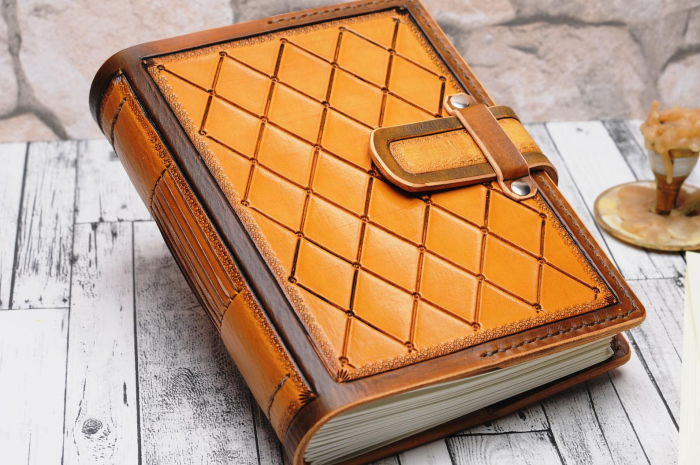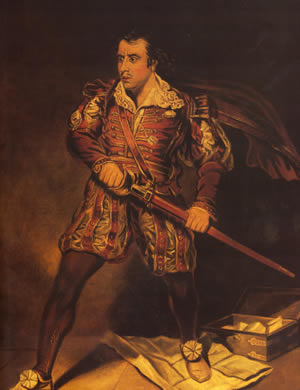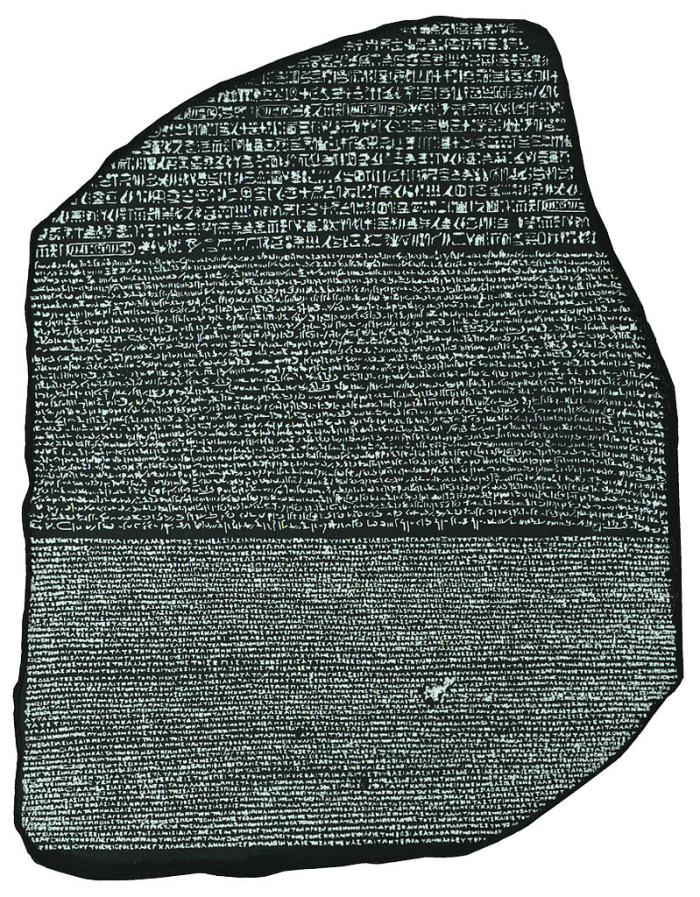
Sun 23rd February.
Today, accompanied by the two aunts, we travelled by their coach to St Andrew's Church where they have a reserved pew. The service was most enjoyable, and Mr Watson preached an excellent sermon. Following the service, we went for a short drive before returning to Chelsea for lunch. Being cognisant of how much we had enjoyed the morning service, the aunts suggested that we might like to visit St Paul's Cathedral for Evensong which takes place at three o'clock.
“They have a very fine choir, the organ is an excellent instrument and the organist very talented,” said Aunt H. I suspect that they like to have a siesta in the afternoon, so we accepted their recommendation.
Arriving at the cathedral about 1 o'clock gave us time to tour the building before the service started, and what a magnificent building it is! I have never seen anything like it in my life. Designed by Sir Christopher Wren to replace the cathedral destroyed in the Great Fire of London, his achievement is immortalised by a phrase in Latin in a great compass circle beneath the dome: ''Si monumentum requiris circumspice,'' which translates to - ''If you would seek my monument, look around you.'' And what a monument it is! Towering columns to the high ceiling, and the amazing dome far above us. Some very famous people are buried there, including Admiral Lord Nelson, Joshua Reynolds, the painter, Jeremiah Clarke, the composer, and many more.
We took our seats for the service which was very moving. The voices of the choir are angelic and the organ playing magnificent. It reminded me that I am very much delayed with my pianoforte practice, but I fear I shall never play to such a standard.
Monday 24th February
We visited Mr Northcote's studio to view some of his portraits in order to determine if his style was one that suits us. He is indeed a very fine painter, and I would be pleased to have him record my image, which I hope will be seen by future generations. Richard took Mr Northcote aside to make enquiries regarding cost and then returned to me and asked if I might be satisfied with Mr Northcote's ability to capture my appearance to my satisfaction.
“Judging by the work he has shewn us I am confident that he would make most satisfactory portraits,” I replied.
“Mr Northcote informs me that he is willing to come to Oxford for our sittings in familiar surroundings. He has a sister there and would welcome the opportunity to visit her.”
“If you feel that his terms are reasonable, then by all means commission him to paint our portraits,” I replied, and it was arranged that he would visit us in about a month's time after we have returned to Oxford and I am settled into my new home.
Tues 25th February
This morning I was rather tired and remained in bed for some time. When I finally arose it was to find that Richard had gone into London on business, although what it was, I had no idea. If the aunts had been made privy to his intentions, they said nothing. Some time after breakfast Richard appeared again and took me aside to impart some news.
“Leonora, I know that you are a great admirer of William Shakespeare but have never had the pleasure of seeing one of his plays performed. Today I have reserved a box at the new Theatre Royal, Drury Lane for a performance of “Macbeth”.
“Oh Richard, that is such a kind thought!” I replied. I confess I had a great deal of trouble in containing my excitement for the rest of the day,
I chose one of my prettiest gowns to wear together with a pelisse since the air would likely be cool when the play finished. After an early dinner, by kind permission of the aunts, we set off about six o'clock for the theatre. It is a most beautiful building and Richard informed me that it is the fourth theatre to stand on the site and only opened early this year. As for the play, Mr Edmund Kean, the famous actor was to play the part of Macbeth, and Mrs Sarah Siddons, Lady Macbeth, a part for which her fame is widespread. They are possibly the most famous actor and actress of the present day, and to see them perform was a great privilege.
Edmund Kean


Sarah Siddons painted by Thomas Gainsborough
The play itself was most powerfully performed. Richard informed me that some ladies swoon at Mrs Siddons' performance and have to be carried from the theatre. I believe he was forewarning me in case I should feel faint. Fortunately, I was enjoying the play too much to have any thought of swooning. At the conclusion, the applause was thunderous as many curtain calls ensued, and I thanked Richard most effusively for enabling me to attend a performance of a Shakespeare play at long last.
“I hope we have more opportunities to attend plays,” he said. Sadly, the only theatre in Oxford, the Sheldonian Theatre while used for concerts and lectures is not used for drama, so there is no chance of seeing plays without our travelling from home.
Wed 26th February
We awoke to leaden skies and Richard suggested that this might be the ideal day to visit the British Museum. I was concerned that Harold and the horses might be soaked if rain ensued, but Richard assured me that Harold has a greatcoat and hat which will withstand any inclement weather, and as for the horses, they are quite used to being in the rain.
“You must think me very foolish,” I said to him, blushing deeply.
“Not at all, your concern for man and beast does you credit,” he replied.
After breakfast we set off for the museum which is housed in Montagu House on Great Russell Street. Although there have been various additions to the building to allow for the increasing size of the collection, it seems that there are plans to construct a new much enlarged building on the site once an approved plan and funds become available. Our coach drew up at the foot of the entrance stairs and we alighted and entered the building. The collection of Egyptian antiquities is already extensive, much of it bequeathed by Sir Hans Sloane, a great collector of last century, but the item I was particularly recommended to see by Papa, the Rosetta Stone, was not visible.
“Perhaps it is being worked upon by scholars?” suggested Richard. I had brought my letter of introduction from Papa, so Richard suggested he find a porter to convey it to the curator in charge and ask if we might see the item of interest. He returned shortly afterwards and in about five minutes, a tall man with white hair and a beard appeared as if by magic.
“Good morning, Mr and Mrs d'Anglais. I am Professor Andrew Felspar, Curator of Egyptian Antiquities at the museum. I have read your letter of introduction and understand that I have the honour of meeting the daughter and son-in-law of Professor Sir Robert Bolton of Oxford.”
I smiled and curtseyed and Richard bowed.
“He mentions that you would particularly like a viewing of the Rosetta Stone which is not currently on display since it is being studied by several scholars, but if you come with me it would be my pleasure to show it to you.”
He led the way through a door marked 'No Admittance', down a corridor and into a large room which had many artifacts on examination tables, which I took to be of Middle Eastern origin. In the middle of the room was the Rosetta Stone, out of its case and being closely examined by several scholars. We were invited to come closer and see it for ourselves.

“As you are no doubt aware, this stele contains a decree written in three languages; Egyptian hieroglyphs, the meaning of which has been lost; Egyptian Demotic which is the common writing of ancient Egypt, and ancient Greek. We believe it to have been created in the reign of King Ptolemy V Epiphanes who lived about 200BC. We are sure that this will enable us to eventually understand the meaning of the hieroglyphs and so in the fullness of time enable us to translate the many examples which we see in tombs, temples and statues. We have made copies available to scholars in other countries, as this work is too important to be restricted to the museum here alone.”
He paused for a moment, then said, “We normally stop our work for refreshments about this time, and while I'm sure the surroundings are greatly inferior to those you are used to, could we offer you both a dish of tea?”
We accepted his hospitality with gratitude and spent an enjoyable time discussing ancient Egypt with Professor Felspar and some of his scholars. It was of particular interest to me but I believe that Richard found it interesting too. I think that some of the staff were quite surprised that a young lady should have so much knowledge of ancient Egypt. I thought that I should explain.
“I have been most fortunate in being able to study ancient Egypt with the assistance of my father. One thing I have asked him is whether an untouched pharoah's tomb is still to be discovered. He thinks not, but I would appreciate your opinion on the matter.”
Professor Felspar smiled. “I too consider it unlikely, but half of the pharoahs' tombs are yet to be discovered, so it is not an impossibility. You may not be aware, but we believe that some of the pharaohs of the later dynasties who were in straitened financial circumstances often due to wars with other countries, authorised the removal of valuable items from the tombs of their richer ancestors.”
“I am quite surprised to learn that,” I replied, quite shocked. “Did they not fear retribution from the spirits of their ancestors?”
“I am sure that they did not disturb the mummies, or the essential grave goods left for them to utilise in the afterlife. Common robbers had no such scruples. If you will excuse me for a moment.” and he arose and left the room. When he returned, he was holding a small object wrapped in some material.
“I would like to make you a present of this ancient item as a memento of your visit with us. It is called an ushabti doll and many of them were found in the tombs of pharaohs and important officials. They are meant to represent servants to perform menial tasks demanded of their owner by the gods, and so are made in the likeness of the owner's mummy.” So saying he unwrapped the object .

I confess that the idea of accepting something taken from a tomb was not attractive to me, but how was I to refuse a gift without giving offence?
“Surely this should be in a museum?” I said. “It must be very valuable.”
“Alas no, there are many thousands of them; tomb robbers did not steal them since they are made of clay and so were considered worthless then..”
“Thank you very much, Professor, I will treasure it,” I said. What else could I say?
We made our farewells with sincere thanks to the professor and his staff for their hospitality, and I promised to pass on the professor's greetings and compliments to Papa, plus the hope that he would visit the museum again soon.
“Please tell him that we have acquired some interesting new artifacts which I would have much pleasure in discussing with him,” said the Professor.
When we left the building, it was to find that it had been raining and both Harold in his greatcoat and the horses were glistening with water.
As we travelled back to Chelsea, I said to Richard: “What am I to do with this doll? I really do not wish to keep an object which has been removed from a tomb. It really belongs back with the original owner, although I have no way of knowing who that was.”
“Why not make a gift of it to Professor Bolton? I am sure he would appreciate it,” said Richard.
“What a wonderful idea!” I exclaimed. “Darling, you are not only very handsome but you have a brilliant mind as well!”
After dinner, I showed the doll to the two aunts but their reaction was much like mine – they did not like the idea of something from a grave in their house, so I promised to wrap it up again and put it out of sight.
Richard thinks that we should start our journey north to Cumberland in a couple of days, so I will ask Marie to start packing my clothes tomorrow.
Thurs 27th February
We had a quiet day, with Marie and Robert packing our clothes preparatory to leaving London, For the evening, Richard suggested that we visit the Vauxhall Pleasure Gardens, south of the Thames in Lambeth, since the weather was quite mild for the time of year. It was a most pleasurable outing; the gardens being lit up with thousands of coloured lanterns made to resemble stars and constellations, and numerous entertainers such as musicians, jugglers and singers were present. There were many delightful walks and so many lodges built in fantastical shapes and serving cold collations, and all around the buzz of excitement from so many people enjoying themselves.
Friday 28th February
We spent the day in pleasant conversation with the two aunts, and we have promised to come and visit them again. When we first met them, I confess to being somewhat frightened of Aunt Henrietta, but now that I am used to her manner, I find that I like her as much as Aunt Juliana. We have had a delightful dinner this evening and are retiring to bed early in preparation for the start of our journey north tomorrow.
To be continued
If you liked this post, you can leave a comment and/or a kudos!
Click the Thumbs Up! button below to leave the author a kudos:
And please, remember to comment, too! Thanks.



Comments
So real it feels like I am with them
Goodness, Thank you so much for painting such a vivid picture of Regency London.
I really feel that I am there with Richard and Leonora, in Drury Lane, and the British Museum, and especially in Vauxhall Pleasure Gardens, which do sound delightful, even in our jaded and technology filled world, that does sound a lovely experience.
I look forward to our lovely couple revisiting the Lakes, which will have happy memories as their first meeting place.
Lucy xx
"Lately it occurs to me..
what a long strange trip its been."
It is interesting
that the curator did not find value in that artifact.
The detail in your story is amazing!
One could close their eyes and imagine London in the early 19th century. Great story so far.